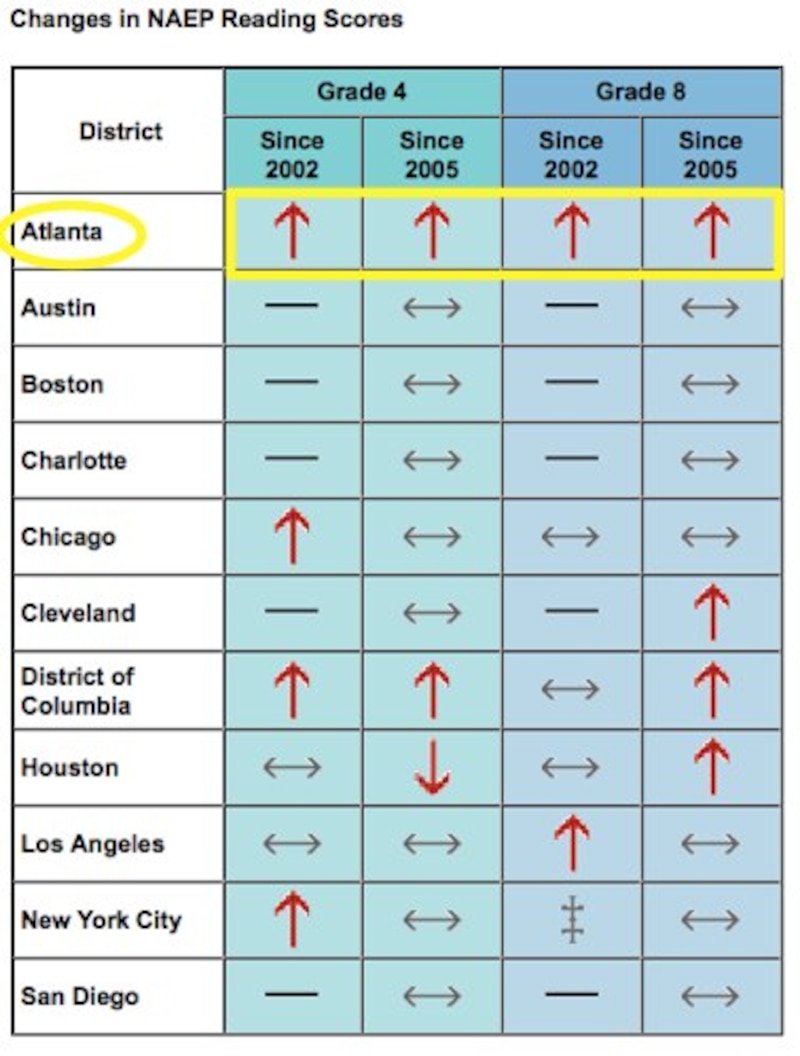While most big-city superintendents would rather their scores on the National Assessment of Education Progress just go away, Beverly Hall of Atlanta has gone out of her way to make sure her students’ progress is judged against the national yardstick.
In a recent profile of Hall, EdWeek reported:
As test scores rose steadily year after year, Ms. Hall wanted to ensure that Atlanta’s progress would not be dismissed by criticism that Georgia’s performance standards and assessment, before recent changes to both, weren’t as rigorous as many other states’. The superintendent decided the city’s students would take a more rigorous national exam and publicly report the scores.
Hall’s colleagues feared that low scores on the national test would draw negative attention to the city’s schools.
But instead, Atlanta was the only district that showed significant gains in both reading and math every year.

That might not have come as a surprise to Atlanta residents, who have seen student absenteeism and teaching vacancies drop dramatically during Hall’s nearly 10 years in charge of the city’s schools. In 2007 all Atlanta elementary schools made Adequate Yearly Progress under the No Child Left Behind Act thanks to their much-improved state test scores.
Formerly the superintendent of the Newark, N.J., schools and an administrator in New York City, Hall could soon become the longest-serving urban superintendent, EdWeek reports.
Despite Atlanta’s success and Hall’s longevity, uncommon among urban superintendents, Hall has been overshadowed by the new breed of urban schools chiefs that includes New York’s Joel Klein and D.C.’s Michelle Rhee. But she attended the Gates Foundation conference this week in Seattle, and an EdWeek reporter says she could be a sleeper candidate for Secretary of Education.
